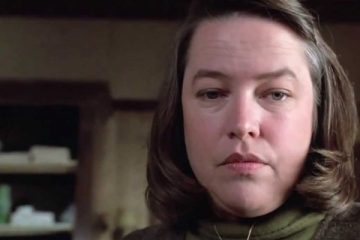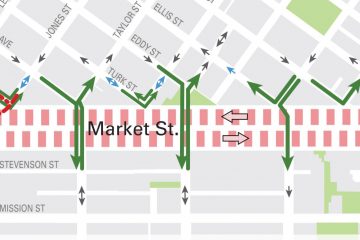Ghost Ship trial looms but justice may not be served
For families and friends of the 36 Ghost Ship Fire victims, the road to justice has been long and fraught with disappointment. A surprise ruling made Friday tipped the scale and offered those grieving a small sigh of relief, but that relief may be short-lived.

Family and friends of Ghost Ship victims arrive for a sentencing hearing for defendants Derick Almena and Max Harris at the Rene C. Davidson Courthouse in Oakland, Calif., on Thursday, Aug. 9, 2018. Almena and Harris pleaded no contest to involuntary manslaughter for the deaths of 36 people at the deadly Dec. 2, 2016 warehouse fire. (Photo courtesy of Anda Chu/Bay Area News Group)
Here, we dig into the background of a story that has haunted Oakland and the surrounding community for nearly two years and examine the emotional realities and legal implications of a case that just made a sharp turn from done deal to question mark.
Derick Almena, 48, and Max Harris, 28, have both been charged with 36 counts of involuntary manslaughter in connection with the deadly fire at the Oakland artist collective warehouse on Dec. 2, 2016. Both defendants accepted a deal in June where in exchange for their no contest pleas, Almena would be sentenced to nine years and Harris six years in Santa Rita Jail, with credit for time already served. It was expected the two-day sentencing hearing would conclude Friday with affirmation of what was outlined in the plea offer, but Judge Jim Cramer shocked the court when he rejected the deal, potentially sending the case to trial. Both men could face up to 39 years in prison if found guilty of all 36 charges.
After an emotional two days of impact statements made on behalf of the victims and defendants, the judge was faced with a tough decision: either accept the plea deal and sentence both men as previously outlined, or reject the deal in its entirety. Cramer “wrestled at length” in his deliberation privately and on the bench – his speech was slow and labored and at one point, he seemed to start crying as he issued his ruling.
“A case like this is like no other we have seen,” Cramer said and further added how difficult it is to determine appropriate sentencing in a case of this magnitude and complexity.
As victims’ loved ones took to the podium with printed statements and some with pictures of their children, both alive and as they were found after the fire, Harris and Almena sat quietly in county-issued jail uniforms and listened. One by one, parents, siblings, cousins, friends and others shared stories about the people they lost. One by one, they expressed the anger and sadness they have endured since their nightmare began on that tragic Friday night. One by one, they begged Cramer to reconsider the plea deal and light sentences accepted by the defendants during earlier negotiations brokered by presiding Judge Morris Jacobson.

An illustration depicting David Gregory’s victim impact statement on Aug. 9, 2018, in the criminal trial charging Max Harris and Derick Almena with 36 counts of involuntary manslaughter for their role in the 2016 Ghost Ship warehouse fire in Oakland. (Photo courtesy of Vicki Behringer/Courtroom Artist)
One point most parties seem to agree on was that nobody involved “intended” to start the fire, nobody is accused of wanting to kill 36 innocent, young and vibrant people. The argument is not whether the defendants acted maliciously, but whether their actions and behavior were criminally negligent. Cramer was not legally entitled to alter the deal, so his task was to simply accept or reject it based on factors of fairness and remorse. That turned out to be anything but simple for a variety of reasons.
“You can’t put a sentence on this.”
Those words from Alberto Vega, Alex Vega’s older brother, resonated with the judge. His was the last family impact statement heard Friday and his last-minute decision to speak left him at the podium without a prepared speech, with raw and entangled emotions on his sleeve. He spoke of missing his brother and the relationship he won’t get to have with him. He shared his worries for mother and whether she will live through this and he admitted to his own depression and suicidal thoughts for the first time in his life.
“Death is a part of life, we all go through it,” Vega said. “But nobody should go out like that.”
Amid all the hurt and anger, Vega still offered Harris some sympathy, having heard he also lost people in the fire and tried to save others. “You’re a young dude,” Vega said. “I don’t want to see you locked up for the rest of your life.”
“I don’t want to hate you…but you guys need to take some accountability for the things you’ve done – for the things you didn’t do.”
Michela Gregory’s aunt, Karen Frieholtz, was just one of several people that rocked the court with emotional words and tears, but she wanted people to know that Michela was not just one of the 36 people who died that night. She demanded both defendants look at Michela’s picture, look at her family, to close their eyes and imagine their own daughter trying to escape a deadly fire. “I hope you’re both haunted for the rest of your lives,” Frieholtz said.

A portrait of Alex Vega and Michela Gregory at Vega’s family home during a memorial for the young couple in San Bruno on Dec. 7. Photo courtesy of Carlos Avila Gonzalez/The Chronicle
She painted a picture of the third-year honor student at San Francisco State University as a super funny, stubborn, beautiful champion of underdogs with a love for llamas, music, art and a passion for helping others.
Michela and Alex were a young couple just beginning to live life. They died in each other’s arms. The pain described by these two family members represents just a fraction of the torment felt by the collective loss of 36 people in what was the deadliest fire in Oakland’s recorded history. Each story was unique and just as tragic. How do you put a sentence on that?
Two men, two sentences, one deal
Derick Almena
Derick Almena was the “master tenant” at the Ghost Ship – it was his name on the lease for the property where he lived with his wife and three children. He shared the warehouse with up to 25 other tenants, artists and musicians whom he admittedly begged and invited to be there, people desperate to remain in Oakland and willing to shell out $350 to $1400 per month in rent for a live/work spaces among the underground DIY community. He built an environment where creativity flourished with dozens of pianos and organs, art installations, Balinese beds and Persian rugs lining the wooden floors and hung on the walls. Several times during the sentencing hearing, the property was referred to as “awesome” and “beautiful.”

Photos posted on the Oakland Ghost Ship’s web page before the fire showed spaces crowded with flammable materials. (Photo courtesy of Tumblr / Oakland Ghost Ship)
But many, including some former tenants, believe he ignored obvious safety concerns in his pursuit, that the chaotic and rambling space reflected the inner workings of Almena’s mind and was influenced by his once-heavy drug use. He used salvaged wood to give tenants defined spaces and built a makeshift staircase to the second floor. When a transformer blew at the Ghost Ship, he tied into the electrical system at the building next door.
On the night of the fire, Almena and his family chose to stay at a hotel, away from the loud electronic music show being held at the warehouse. In statements shortly after the tragedy, Almena thanked God his family wasn’t there and lamented the loss of what he’d “worked so hard for.” Understandably, family and friends of the victims took issue with his comments, describing him as “callous.” He did little to change that perception during his statement in the witness box Friday.
Almena’s turn to address the court came immediately after his 14-year-old daughter spoke at the podium on his behalf, where she described him as her rock, her balance, her life. “I miss my papa every day,” she said. “I need him.”
Meandering between acceptance of responsibility and blame shifting, bordering on self-pity, one particular comment Derick Almena made fell like a lead balloon on both sides of the crowd. “If I could give my life,” Almena said, “if I could give my children’s lives, I would.” The words elicited gasps from victims’ friends and family and objections from Almena’s own support group, where his daughter sat beside his wife. The prosecution revisited that statement during closing arguments – the insinuation that the grieving was vindictive, that they sought an eye for an eye, that the loss of another child would somehow right this wrong and the loss of their was own was characterized as “offensive.”
Max Harris
Harris was a tenant and the “art director” at the Ghost Ship and was often involved in arranging and hosting shows like the one held that night. People who spoke in court or wrote in to testify to his character described him a gentle soul who dedicated his life to art and spirituality. “There isn’t a greedy or malicious bone in his body,” Harris’ aunt Laura Lynd said, a sentiment repeated by others. A letter from former Ghost Ship resident Carmen Brito, who was also in the warehouse that night, said: “Max gives (disproportionately) from what he has to offer. Every ounce of his energy is in service to God.”
Brito, who was sleeping in the back of the property on that fateful night, described Harris’ actions when the fire broke out. It was noted that Harris was positioned near the entrance at the time, where he could have quickly and easily escaped, instead he chose to stay and help those inside. “He was running toward the fire, using his cell phone light to try and guide people out,” Brito wrote. “It all happened in under three minutes before the fire department got there. More people would have died if Max hadn’t helped.” His aunt, friends and attorney corroborated Brito’s account, claiming he saved at least a dozen people and only left the building when he was completely overwhelmed by the heat and smoke and when he was forced out, he attempted to help firefighters pull wood away from the building with his bare hands. In the immediate aftermath, his attorney said Harris went voluntarily to the Bureau of Alcohol, Tobacco, Firearms, and Explosives office to offer any information that may help them determine the cause.
According to Harris’ attorney Curtis Briggs, his client never hid lawyers or made insensitive social media posts. Briggs explained that Harris had never asked his legal team to beat the case, that he only asked to take responsibility and be held accountable. “This was a tragedy that didn’t need to happen,” Briggs said. “He could’ve made a thousand choices that would’ve prevented this and he knows that.” When Harris himself spoke from inside the witness box Friday, his words and demeanor aligned with the way he was described by loved ones. “I’ve prayed for the families every day,” Harris said. “I know you’ll never feel whole again.”
“I am so deeply sorry and regret my actions, inactions. The words feel hollow – they don’t come close. …I don’t expect forgiveness.”
Sticking points
Aspects of this case muddle the pursuit of justice, some of which Judge Jim Cramer touched on in his ruling. First and foremost, the two defendants are uncomfortably intertwined. The plea was offered as a package deal, meaning they were made to decline or accept the deal jointly. It was evident early in the story’s development and made clear again during the sentencing hearing that although people lay blame on Harris for his part, many see Almena as potentially more responsible and definitely less remorseful. Judge Cramer appeared to agree.
“Mr. Harris has, from the outset, demonstrated significant remorse,” Cramer said. But Almena’s statement at the hearing and prior 27-page letter to his probation office, which the judge read portions of aloud, often deflected blame and focused on his own suffering. “That is not an acknowledgment of responsibility and it is not remorse,” Cramer said. “I am expressly rejecting this deal with regard to Mr. Almena, but I do not know that it will help the victims’ families here.”
Cramer divulged two reasons he was hesitant to push the case to trial: 1) attorneys for both sides have expressed concern about holes in the evidence, which could severely impact a jury’s decision – Almena and Harris could theoretically be found not guilty based on lack of evidence, and 2) a trial for these particular two defendants would focus solely on the evidence pertaining to their involvement and would neglect to address the responsibility of others not on trial, despite the families’ desire to hold other parties accountable. Compounding the issue is the ATF’s lack of determination in the fire’s cause.
“These two people are obviously responsible…but they’re not the only ones,” said the friend of victim Ara Jo, Terry Ewing. Almena and Harris are just two players in a much larger story that led to the death of 36 people. The building’s owner, Chor Ng, remains remarkably silent and free from legal persecution, so far anyway. The fire department, city building inspectors and PG&E were all aware of safety issues at the property and yet, those issues were never properly addressed. The City of Oakland benefits from a vibrant art and music community that draws visitors; however, they’ve done little to provide affordable and safe housing for the artists and musicians that create that community.
In addition to the actions and inactions of Almena and Harris, several other people in this storyline turned a blind eye over time and increased the risk to those who lived there. Those decisions, each in isolation, were not necessarily nefarious – there’s an unspoken understanding among the community and officials that if these DIY properties were forced to be brought up to code, owners would likely evict current tenants and opt to rake in buckets of rent at Oakland’s ridiculously high market rate. Some overlooking of rules and code violations may have been sympathetic, but the totality of negligence led to tragic consequences.

Mourners embrace near the site of a warehouse fire Sunday, Dec. 4, 2016, in Oakland, Calif. The death toll from a fire that tore through a warehouse hosting a late-night dance party climbed on Sunday as firefighters painstakingly combed through rubble for others believed to still be missing. (Photo courtesy of AP Photo/Marcio Jose Sanchez)
In the end, 36 lives were lost and families were destroyed as a result, and naturally, those families and friends want justice – they want someone to pay the price for their loss. A trial may not give people the sense of justice they seek, but Cramer did give them a voice and if there’s nothing else, at least there’s that.








